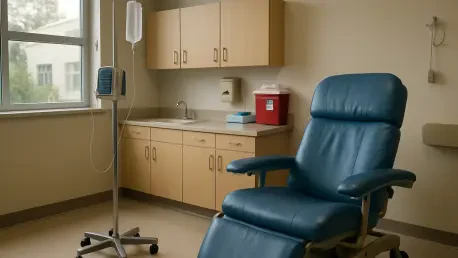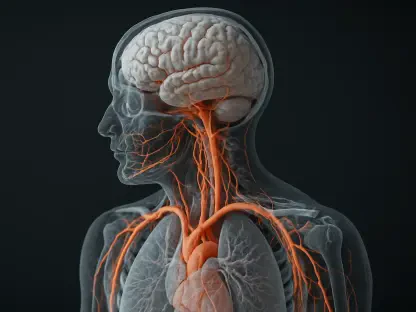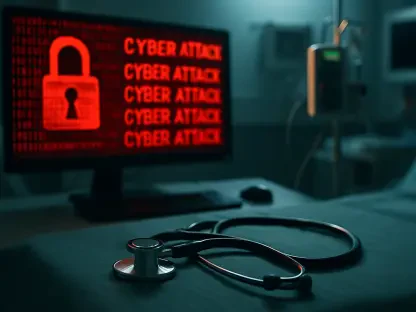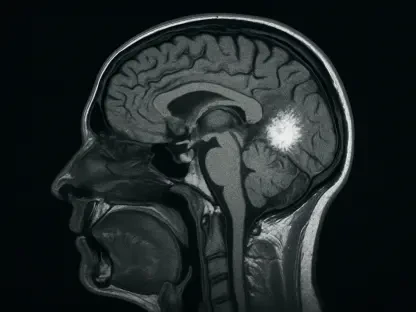In the ever-evolving landscape of cancer treatment, UCLA Health Jonsson Comprehensive Cancer Center stands as a beacon of innovation, showcasing remarkable advancements at the American Society for Radiation Oncology (ASTRO) Annual Meeting in San Francisco this year. Their leadership in the field is evident through groundbreaking contributions that are redefining standards for treating complex cancers such as prostate, lung, and head and neck varieties. Spanning novel therapies, cutting-edge imaging technologies, genetic discoveries, and patient-centered initiatives, their work reflects an unwavering commitment to improving patient outcomes while addressing some of the most persistent challenges in oncology. This article explores the key areas where UCLA is pushing boundaries, setting the stage for a deeper understanding of their impact on cancer care.
Breaking New Ground with Innovative Radiation Therapies
At the heart of UCLA Health’s contributions to radiation oncology lies a dedication to pioneering therapies that enhance treatment effectiveness. A standout example is the LUNAR clinical trial, presented by Dr. Amar Kishan, which investigates the integration of 177Lutetium-PSMA, a targeted radioactive therapy, with ablative radiotherapy for recurrent prostate cancer. This approach focuses on attacking cancer cells with unprecedented precision, potentially offering a lifeline to patients facing recurrence after initial treatments. By combining molecular targeting with radiation, this method aims to disrupt cancer progression at a cellular level, marking a significant shift toward personalized medicine. While detailed outcomes are still under evaluation, the early promise of this therapy suggests a future where recurrent cancers could be managed with greater success, reducing the burden of repeated interventions and improving long-term survival rates for patients grappling with this challenging diagnosis.
Another area of innovation from UCLA is the application of stereotactic body radiation therapy (SBRT), which is reshaping treatment protocols for multiple cancer types. The SCIMITAR trial, presented by Dr. Jesus Juarez Casillas, offers compelling evidence of SBRT’s efficacy for post-surgical prostate cancer patients, with a significant percentage remaining free of recurrence several years after treatment. This shorter, more focused radiation course presents a viable alternative to conventional methods, potentially cutting down on treatment duration without sacrificing results. Meanwhile, research led by Dr. Ricky Savjani and presented by Dr. Miriam Lane on SBRT for head and neck cancer highlights its tolerability in postoperative settings, though recurrence rates within a few years indicate a need for refined patient selection criteria. These studies collectively underscore UCLA’s drive to optimize radiation delivery, balancing effectiveness with the practical needs of patients who seek quicker, less invasive options in their cancer journey.
Enhancing Treatment Precision Through Advanced Imaging
Precision in radiation therapy is paramount to minimizing harm to healthy tissues, and UCLA Health is leading the charge with groundbreaking imaging technologies. Dr. Daniel Low’s research on 5DCT, a novel computed tomography technique tailored for lung cancer patients, addresses the challenge of irregular breathing patterns during scans. By factoring in three-dimensional motion and breathing rates, 5DCT produces clearer, artifact-free images that allow for more accurate tumor targeting during radiation planning. Tested on a substantial patient cohort, this method has shown reliability and is now being adapted for automated processes, which could streamline clinical workflows. The potential of 5DCT to improve treatment accuracy represents a critical step forward, particularly for lung cancer, where precise delivery is often complicated by respiratory movement, thus reducing the risk of collateral damage to surrounding organs and tissues.
Complementing this advancement, UCLA’s exploration of MRI-guided SBRT for prostate cancer, as detailed in the MIRAGE trial, further illustrates the transformative power of imaging. Presented by Dr. Travis Courtney and Dr. Jonathan Massachi, this research demonstrates how MRI guidance can reduce radiation exposure to adjacent healthy structures, enhancing the safety profile of treatments. However, the findings also reveal persistent challenges, including acute urinary and bowel side effects, as well as a notable decline in sexual function among patients years after therapy. These side effects, observed even with advanced imaging, highlight the complexity of achieving perfect precision and the necessity for ongoing innovation in mitigating adverse outcomes. UCLA’s work in this area pushes the field to consider not just technical accuracy but also the broader impact on patient quality of life, urging a holistic approach to treatment planning that prioritizes long-term well-being alongside tumor control.
Unraveling the Mysteries of Treatment Resistance
A deeper understanding of why certain cancers resist radiation therapy is crucial for developing more effective strategies, and UCLA Health is making significant strides in this domain through genetic research. Dr. Beth Neilsen’s study on radiation-resistant prostate tumors dives into the molecular underpinnings of recurrence, identifying frequent mutations in DNA repair genes such as BRCA1 and BRCA2. These genetic alterations appear to contribute to aggressive tumor subtypes that evade standard radiation effects, often coupled with reduced androgen receptor activity. Such insights provide a roadmap for why some patients experience treatment failure and lay the groundwork for targeted interventions that could counteract resistance mechanisms. By pinpointing these biological markers, UCLA’s research opens the door to customized therapies that address the specific genetic profile of a patient’s cancer, potentially transforming outcomes for those with resistant forms of the disease.
Building on this genetic exploration, the implications of UCLA’s findings extend beyond immediate treatment adjustments to broader therapeutic innovation. Identifying the drivers of radiation resistance not only helps in tailoring current protocols but also informs the design of future clinical trials aimed at overcoming these barriers. The aggressive molecular subtypes uncovered in the research suggest a need for combination therapies that might integrate radiation with drugs targeting DNA repair pathways, offering a multi-pronged attack on resistant tumors. This approach could redefine how oncologists manage challenging cases, shifting the focus from one-size-fits-all solutions to precision-based strategies. Moreover, these discoveries emphasize the importance of genetic profiling as a standard component of cancer care, ensuring that patients receive treatments aligned with their tumor’s unique characteristics, thereby enhancing the likelihood of sustained remission and reducing the emotional and physical toll of recurrent disease.
Prioritizing Patient Empowerment Through Digital Tools
Cancer care extends beyond clinical interventions to include how patients understand and navigate their diagnosis, and UCLA Health is addressing this vital aspect with innovative educational resources. Dr. Trudy Wu’s moderated session on digital tools for cancer education showcases the power of technology in making complex medical information accessible. Through animations, videos, and user-friendly platforms, these resources break down intricate concepts into digestible formats, helping patients grasp the nuances of their condition and treatment options. This initiative aims to alleviate fear and uncertainty, which often accompany a cancer diagnosis, by equipping individuals with the knowledge needed to engage in informed decision-making. By fostering a sense of agency, UCLA ensures that patients are not just passive recipients of care but active participants in shaping their treatment paths, which can significantly improve their emotional resilience and overall experience.
Furthering this patient-centered ethos, the digital education tools developed by UCLA also serve to bridge communication gaps between healthcare providers and those they serve. These resources facilitate better dialogue during consultations, allowing patients to ask targeted questions and express concerns with greater clarity. The involvement of patient advocates and multidisciplinary experts in the development of these tools ensures that they address real-world needs, from explaining radiation therapy processes to outlining potential side effects. This collaborative approach reflects a broader trend in oncology toward holistic care, where emotional and psychological support is valued alongside physical treatment. UCLA’s commitment to leveraging technology for education not only enhances patient literacy but also sets a precedent for how medical institutions can use digital innovation to build trust and foster stronger connections with the communities they serve, ultimately contributing to better health outcomes.
Honoring Excellence and Shaping the Future
The recognition of UCLA Health’s leadership within the radiation oncology community adds another layer to their impactful presence at the ASTRO Annual Meeting. Dr. Drew Moghanaki’s designation as an ASTRO Fellow this year is a testament to his influential work in thoracic oncology and highlights UCLA’s role as a hub of expertise and innovation. This honor acknowledges not just individual achievement but also the collaborative spirit that drives the institution’s research and clinical advancements. It serves as a reminder of the importance of mentorship and knowledge-sharing in propelling the field forward, ensuring that emerging challenges in cancer care are met with informed, creative solutions. UCLA’s standing as a leader is reinforced through such accolades, inspiring confidence in their ability to continue pushing the boundaries of what is possible in treating complex malignancies.
Reflecting on the strides made, it’s evident that UCLA Health’s efforts at the ASTRO Annual Meeting carved a path toward transformative change in cancer care. Their presentations on novel therapies, precision imaging, genetic insights, and patient education tools demonstrated a comprehensive approach to tackling the multifaceted nature of oncology. Looking ahead, the focus should shift to translating these research findings into actionable clinical practices, ensuring that innovations like 5DCT and targeted radioactive therapies become accessible to wider patient populations. Addressing persistent side effects through refined techniques and fostering partnerships for genetic-based treatments will be critical next steps. Additionally, scaling digital education initiatives can empower more individuals to take charge of their health journeys. UCLA’s legacy of excellence, as celebrated through recognitions like Dr. Moghanaki’s fellowship, positions them to lead these efforts, driving the field toward a future where cancer treatment is not only more effective but also deeply compassionate and personalized.









